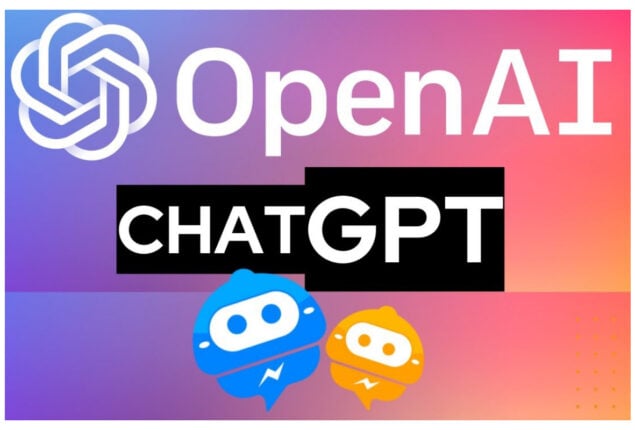WhatsApp’s latest beta update offers new features
WhatsApp has received a new update via the Google Play Beta Program....

ChatGPT
Since the publication of ChatGPT, many commentators have warned of an artificial intelligence (AI) takeover, implying that professors would soon be out of work or that the student essay is doomed.
This is a reactionary and erroneous stance. ChatGPT, by definition, cannot perform the types of things we would like student essays to do.
ChatGPT, like other AI, does not and cannot care: According to philosopher John Haugeland, AI cannot possibly care because nothing matters to it.
ChatGPT, on the other hand, presents a distinct set of issues and opportunities for education and evaluation, some of which ChatGPT has not so much developed as brought to light with a new urgency.

Beyond the current shortcuts made possible by pre-ChatGPT web tools, students and instructors may have lost sight of some of the abilities and values that essay writing is supposed to cultivate, especially judgment and giving a damn.
Is it necessary for educators to reconsider—and even change—some of our teaching and assessment practices? Absolutely.
Does ChatGPT portend the demise of critical thought? Quite the contrary.
Consider the environment prior to the arrival of ChatGPT. Internet text summaries and ready-made analyses offering shortcuts to genuine reading and understanding have become freely accessible.
It’s not difficult to uncover essay mills, and according to The Washington Post, “online examinations have also meant a thriving market for organizations that offer homework and test answers, such as Chegg and Course Hero.”
There will always be students who take advantage of these techniques. Although educators and managers will try to catch them, some will unavoidably get away with it.
The speed and ease with which students can avoid the challenging tasks of reading, interpreting, thinking, and writing, however, is a genuinely innovative aspect of ChatGPT.
Students may have previously had to sift through several websites or shared cloud documents to piece together their research. Now, a series of instructions from their phone will suffice.

But why should ease and speed be the only changes that matter? The effectiveness with which students can cheat today does not support arguments that the student essay is dead.
These issues have existed for a very long time before ChatGPT. It’s just tougher to ignore them now.
Indeed, ChatGPT can frequently respond persuasively to simple essay questions, but these essays show little concern for comprehension, judgment, or reality. When we asked a group of philosophy students to explain ChatGPT to us, it readily acknowledged that it “doesn’t have any understanding of the world, beliefs, or moral values.”
According to some observers, ChatGPT is a “bullshitter” in the philosophical sense of the word because of this: The philosopher Harry Frankfurt asserts that in contrast to a bullshitter, who has no care for truth or falsity and whose “focus is not on the facts at all,” a liar must, to some part, be responding to the truth.
The bullshitter simply makes up stories about events to suit their needs.
Although it is alluring to think of ChatGPT in this way, it falls short. It’s true that ChatGPT doesn’t care about the facts. Why could it?
Not only is ChatGPT a bullshitter that doesn’t care about the truth, but it also doesn’t care about anything.
“OpenAI can’t make a technology that truly cares because that requires consciousness, inner experiences, an independent perspective, and emotions. To care, you need to put things in perspective, offer respect, take offense when appropriate, and provide camaraderie.”
Because of this, ChatGPT cannot naturally accomplish the goals we should have for student writing. The “essays” it generates show no regard for the truth, no understanding, and not the slightest bit of concern for what is being said.
What should a student’s essay accomplish? What writing abilities are important for pupils to acquire? There are numerous reasonable responses, all of which differ from classroom to classroom.
Yet ultimately, what artificial intelligence philosopher Brian Cantwell Smith refers to as judgment—a mode of thought that is deliberate, open-minded, rooted in caring and responsible behavior, and context-appropriate—captures a powerful response.
“Only with existential commitment, genuine stakes, and passionate resolve to hold things accountable to being in the world can a system (human or machine) genuinely…distinguish truth from falsity, respond appropriately to context, and shoulder responsibility.”
Teachers and the general public should want student essays to reflect this idea that comprehension and judgment involve giving a damn.
Cantwell Smith enquires: “Can articulating a conception of judgment provide us with inspiration on how we might use the advent of AI to raise the standards for what it is to be human?”
According to what we have stated here, the response is a resounding and unmistakable yes.
Catch all the Sci-Tech News, Breaking News Event and Latest News Updates on The BOL News
Download The BOL News App to get the Daily News Update & Follow us on Google News.